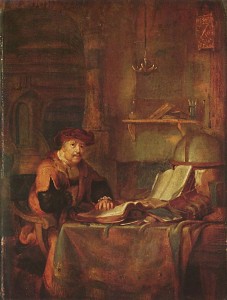 I have been thinking a lot about historical accuracy as I work on these medieval French assassin books so I thought I’d talk a bit about it here.
I have been thinking a lot about historical accuracy as I work on these medieval French assassin books so I thought I’d talk a bit about it here.
But first, a warning: I am not a purist. If you are looking for someone who holds up pristine historical accuracy as the One True Shining Purpose, I am not your girl. For one thing, I am already drawn to the murky, under explored parts of historical periods—their folk beliefs, superstitions, relationship to Other, and their spiritual anomalies—things that most real historians have traditionally steered clear of.
Secondly, I think historical accuracy is an elusive beast, especially the farther back in time you travel. But that very elusiveness is exactly why so many historians tackle time periods that have been written about before: because things change. Sometimes it is the actual information and facts that change—new discoveries are made, new methods of dating or interpreting old facts emerge. But other times it is merely US who have changed, our perspective on history. A great example of this was the influx of histories in the seventies that were told/viewed through the eyes of women or minorities who’d been involved in the historical events, but whose side hadn’t yet been told.
There is also great disagreement on a lot of historical concepts and facts. Just trying to define the middle ages or medieval time period for example, can lead you on a long and twisting goose chase. Some declare it ended in the middle of the 14th century, while others claim it ended in 1450, where still others claim it ended in 1492. You can find solid historical arguments for each of those dates. The truth is, you can often find a variety of sources that will support an even wider variety of interpretations.
So which does a writer choose?
The one that best serves the story they are trying to tell.
Some writers are writing in order to convey absolute historical detail and accuracy and take great pride in that, as well they should because it is so tricky. But others (like me) are mostly interested in evoking the sensibilities and flavor of a time period. I don’t mean that we slap historical costumes on 21st century characters and calling it historical, but rather we try to explore the mindset and worldview of earlier times, but in a way that is accessible to readers.
The His Fair Assassin books have been challenging, not only because the time period was recorded in such a subjective manner, but because most of the earliest sources are in French! Middle French at that, and I simply wasn’t willing to wait long enough to learn that language before writing the story.
What I am doing for this book is dipping my hand in the cauldron of what we know of the events at that time and pulling out those that are most relevant to the story I want to tell. There are vast amounts of historical facts and details I am not even touching—to do so would turn an already huge book into an encyclopedia! But even more important, they aren’t relevant to the story itself.
My own guidepost, touchstone, call it what you will is that the history serves the story.
 Welcome. I'm Robin LaFevers.
Welcome. I'm Robin LaFevers.